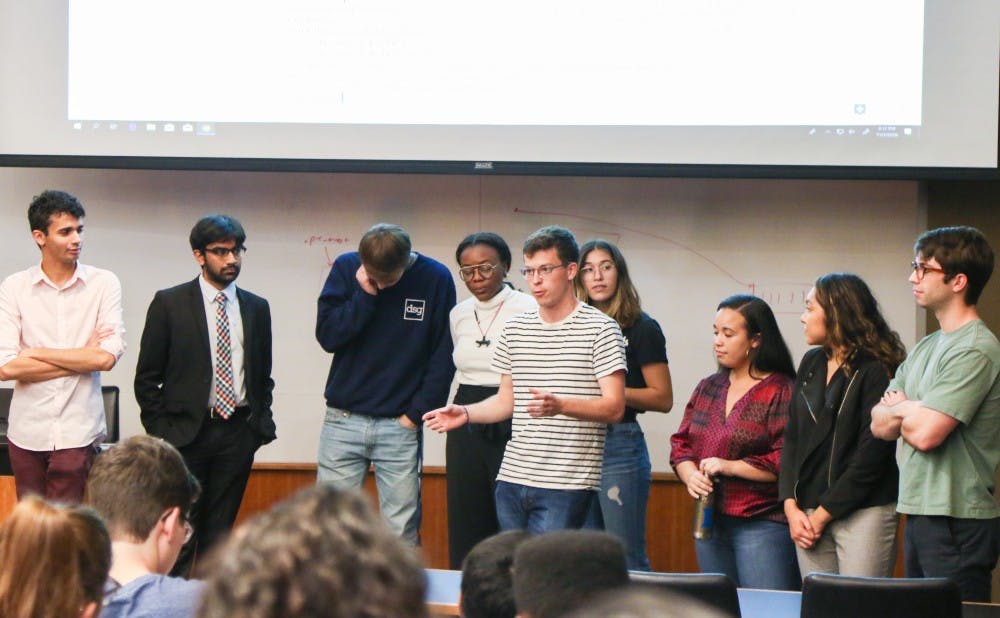Citing general criticism that Duke Student Government did not heed all voices on campus, DSG Senate decided to tweak its bylaws to allow for the formation of caucuses.
DSG caucuses consist of groups of DSG representatives who share certain policy interests. President Pro Tempore and junior Avery Boltwood conceived of them to be a way for particular interest groups to discuss relevant issues and to allow DSG members to work on a wider variety of issues.
At a Senate meeting earlier this month, Boltwood presented two ideas for caucuses, the First-Generation/Low-Income Caucus and the LGBTQIA+ Caucus.
“An initial problem I had was how do we… increase representation of first-generation, low-income people in the Senate,” he said. “We wanted to meet up and it was like, ‘what exact shape does that take?’”
Caucuses must begin within the Senate, but their members can be from any of DSG's branches. If a caucus is empty at the beginning of a new academic year, the President Pro Tempore will let the Senate know that the caucus exists and needs members.
“Part of it was people in DSG feeling like they were kind of pigeonholed in whatever corner they found themselves in,” he said. “Certainly in my experience, [as a] first-year on [the Senate committee for] campus life… you don’t know anything going on outside of your own committee.”
The interests at the forefront of the proposed First-Generation/Low-Income and LGBTQIA+ caucuses inspired the idea to institutionalize them.
Boltwood himself is a first-generation student, and Director of LGBTQIA+ Affairs Maria Morrison approached him with the idea of creating a “queer caucus,” as he termed it. Boltwood also mentioned efforts to curb sexual assault and gender violence as an area that could benefit from the creation of a system for coordinating initiatives.
Boltwood told the Senate that the caucuses will serve three main purposes for DSG: acting as a point of contact for students on specialized policy areas, distributing targeted information to interested students and promoting cross-committee collaboration. Part of their job will be creating and shaping legislation, but they will also collect community feedback on their issues.
“I think another important focus is that, by assembling these people together, there’s now an obvious point of contact for people outside of DSG to talk about these particular issues,” he said, “So legislation is one output, but I think another output is [getting] community feedback in a way that we haven’t been able to do before.”
Editor's note: This article was updated Thursday night to clarify the attribution of "queer caucus."
Get The Chronicle straight to your inbox
Signup for our weekly newsletter. Cancel at any time.
Matthew Griffin was editor-in-chief of The Chronicle's 116th volume.

